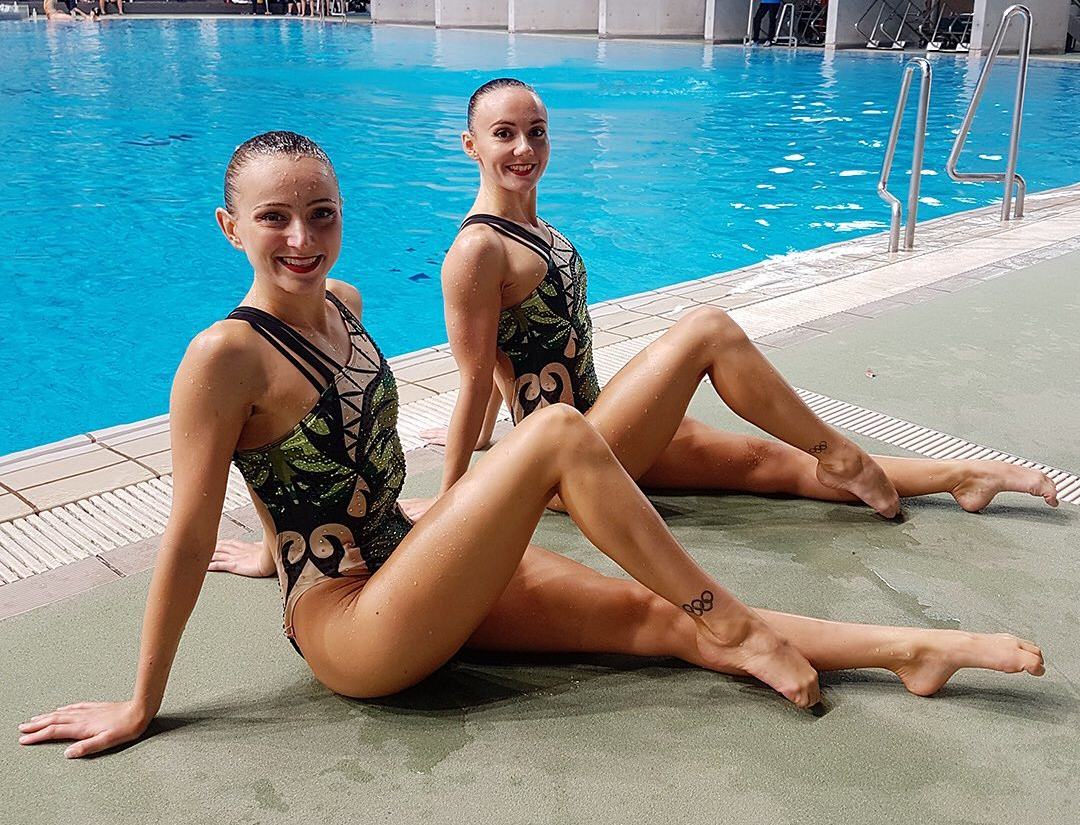Amie Thompson will represent Australia at her second Olympics next year in Tokyo. The Artistic Swimmer has been selected to swim in both the Duet and eight-person Teams competitions.
“I am very excited to be going to another Olympics,” Thompson said.
After trying multiple sports growing up, it was Thompson’s primary school teacher who suggested synchronised swimming.
“I was doing lap swimming and gymnastics; I wasn’t very good at either of those. My primary school swim teacher could see that I wasn’t very engaged in those sports, so she thought to put them together and suggested I try synch swimming, I found something I loved,” the 24-year-old said.

In Australia, Artistic Swimming is a small sport with only 12 clubs across the country. It is a stark contrast to the top countries of Russia, United States, Canada and Japan.
“A lot of people don’t even know what the sport is, they think it is water ballet. We find it hard as a sport to get ourselves out there. It is hard to market myself, despite being an Olympian,” Thompson said.
“The postponement of the Olympics is really good for our sport because as an Olympic sport we only get media attention about five months out from the games but now we have over a year of Olympic media.”
It was a nervous time for Thompson in March when the Australian Olympic Committee announced they were not sending athletes to the Olympics.
“When I heard Australia wasn’t sending a team, I was really worried. A week later when International Olympic Committee announced a postponement to 2021, I was very relieved, because that meant I could still be a part of it. I couldn’t imagine the games going ahead and not being a part of it,” the Perth based athlete said.
“It is a blessing in disguise that we have this extra year to work as an Olympic team, not only to work on our growth as a team and to strengthen our bond but also to get a lot more experience, we can improve our routines.”
The circumstances have also allowed Thompson to continue her studies, enrolling at University despite being four weeks late.
“I am currently studying Engineering and I am doing three units this year. I wasn’t going to study but with the Olympics being pushed back, it is a great opportunity,” the 2016 Rio Olympian said.

Artistic Swimming looks graceful and has a lot of technical aspects, but it is one of the most strenuous sports in the world. A test on all the Olympic sports before London 2012 found artistic swimmers ranked second to long distance runners in aerobic capacity.
“To do a whole routine is physically demanding. Imagine sprinting for four minutes while intermittently holding your breath with your heart rate up at about 180bpm for the whole time. It is quite draining,” Thompson said.
“We rarely do an entire routine in training sessions, so when you do, you put all your effort into it, and you are absolutely exhausted at the end.”
“A lot of our training is on land. There is a big focus conditioning, weights, stretching. We go through the routine on land, which we call land drill. It is easier than doing it in the water. We can clarify counts and movements but you’re also not treading water so you’re not losing energy and focus.”
Thompson learnt a lot from her first Olympics, and it has helped shape her goals for Tokyo.
“We had an interesting journey from 2014 to 2016. We learnt a lot of lessons in the sport; how to prepare for big competitions, how to pick yourself up when things haven’t gone right. Nerves hit at random times when I don’t expect them. I will be ready to feel them now because with experience I know that it happens,” the team co-captain said.
“As a team, our goal is to be really proud of our performance. We are never going to execute a perfect routine.”
“I didn’t really grasp that before my first Olympics. We wanted to beat Egypt in Rio, that was our goal and we didn’t do it. I felt really disheartened, I was a bit down after that. Even though I should have been proud of how much work we had done, we had improved so much, looking back I can see that now. I don’t want to be upset with myself if we don’t achieve a certain score in Tokyo.”

“We are the only team at the Olympics that does not have a centralised program. So that itself is a disadvantage. We want to stand on stage after our swim, look at our scores no matter what they are and just be proud of the swim we did and the improvement we have made. To be proud of the hard work and the sacrifices.”
Story: Daniel Hill, WSA Content Creator






